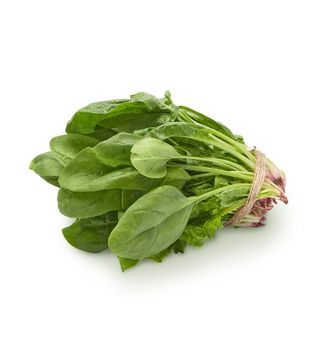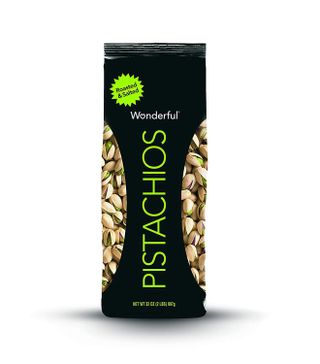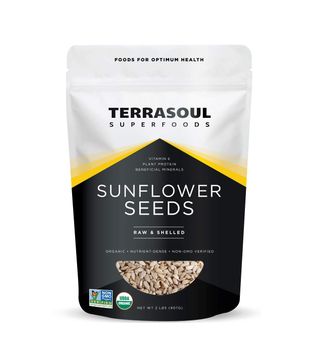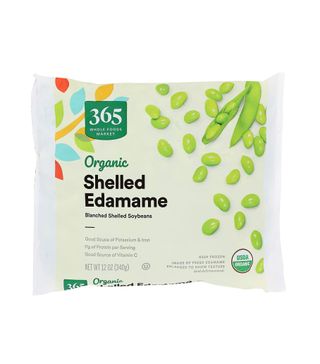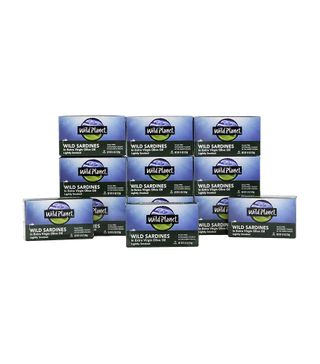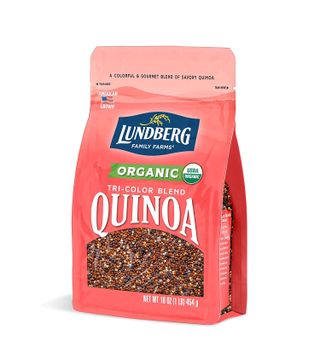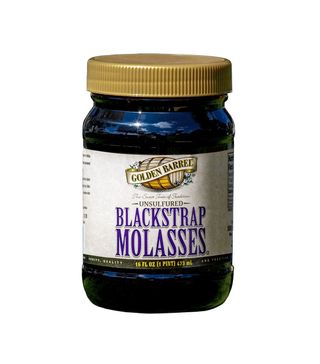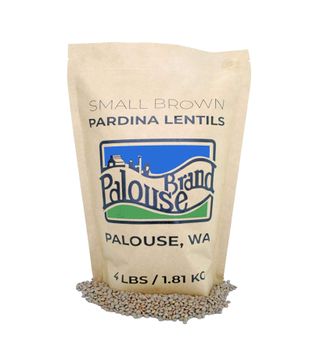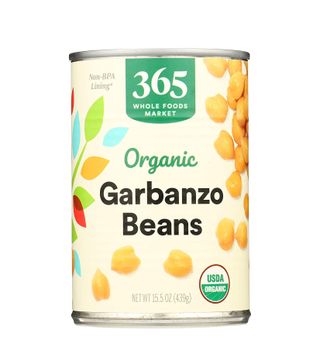10 Foods You Should Be Eating If You're Anemic
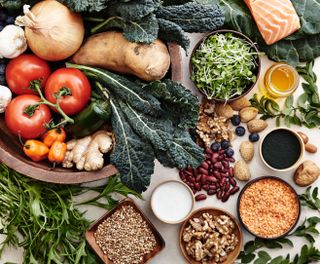
Anemia, according to celebrity nutritionist Isabel Smith, MS, RD, CDN, occurs when the body's red blood cell count dips too low, thereby restricting the flow of oxygen our muscles and tissues crave in order to perform to the best of their ability. Signs and symptoms vary, but New York Nutrition Group's Lisa Moskovitz, RD, CDN, tells us they can include fatigue, sensitivity to cold, dizziness, irritability, cravings, and possibly shortness of breath, irregular heartbeat, or headaches. The main culprit behind the condition? Iron deficiency—and thanks to that little thing called menstruation, women are especially susceptible.
If you think you might be anemic or are experiencing any of the above symptoms, a physician should be your first visit, but there are things you can do on your own—namely, tailor your diet to include foods for anemia. "It's important to ensure you consume enough iron-rich foods, especially if you're at risk or have been diagnosed with iron-deficiency anemia," explains Moskovitz. "Just increasing your consumption of iron in your diet can help better transport oxygen in your blood to correct the condition."
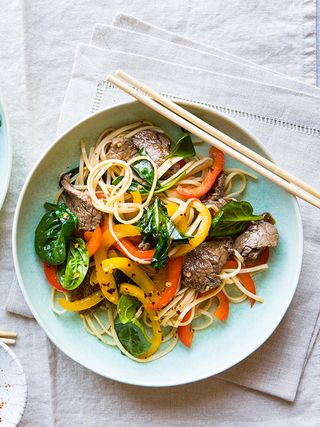
Though we are living in an amazing moment where we recognize the potential healing power of what we eat, it's not necessarily accurate to think of food as medicine. Yes, supplementing your diet with iron-rich foods is a great step in the right direction and can help bolster and maintain healthy iron levels, but it's just as essential to talk to your physician (and never self-diagnose).
"There are many causes of anemia and many other conditions that can spark similar symptoms," confirms Moskovitz. "Additionally, iron supplements are only necessary if you are diagnosed with iron deficiency or iron-deficiency anemia. They should not be taken otherwise, and you should always ask your doctor before taking any kind of supplement."
Either way, there's no harm in increasing your intake of iron-rich foods; your health will likely only be the better for it. In fact, many of Smith's and Moskovitz's recommendations are the colorful and clean kind that nutritionists recommend over and over for their litany of benefits—not just their natural iron count.
Oh, and if you're vegetarian or vegan, don't fret. Even though some of the best food sources of iron come from animals (eggs, fish, lean meat, and the like), there are plenty of plant-based options as well. Ready to start a running shopping list?
1. Dark Leafy Greens
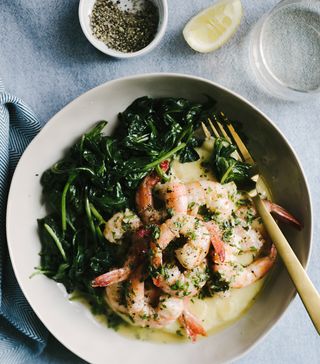
According to Smith, there are two types of iron that can be present in food—heme, which might be better for anemia, and non-heme: "70% of heme iron (found in animal sources) can be absorbed by the body, while only about 30% of non-heme forms of iron (found in plant sources) can be absorbed by the body," she tells us. Therefore, if you rely on non-heme, you might need to up your serving sizes, as less of it will ultimately be absorbed by the body. Dark leafy greens such as spinach (Smith recommends cooking it and adding a squeeze of lemon) are a great non-heme source.
2. Nuts and Seeds
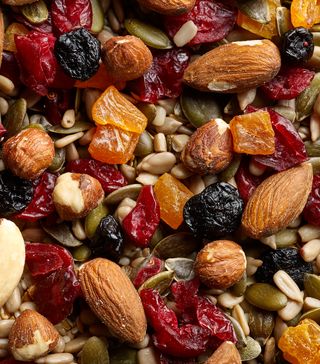
By now we know nuts and seeds are some of the most nutrient-dense foods we can snack on (healthy fats, protein, the list goes on). And according to Moskovitz, pumpkin seeds and pistachios are great, iron-rich options to keep beside your desk. Proof: Just one ounce of pistachios will provide 6.1% of your daily value.
3. Lean Red Meats
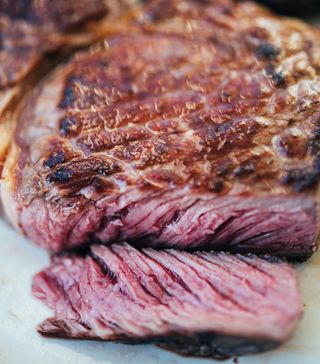
For a heavier hit of iron and 22% of your recommended daily intake, try a lean cut of grass-fed beef. To maximize iron absorption, Moskovitz suggests pairing with foods rich in vitamin C such as tomatoes, red peppers, strawberries, oranges, Brussels sprouts, and broccoli.
4. Organic Soy Beans
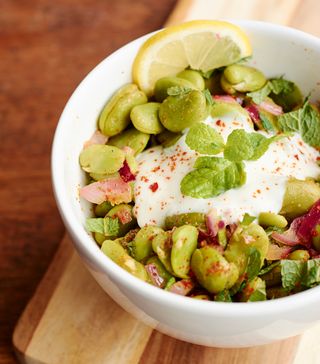
According to Moskovitz, soybeans (which we recommend buying organic) are a great source of non-heme iron for those who are vegan or vegetarian. Plus, they're also rich in protein and work well in main courses and snacks alike.
5. Shellfish
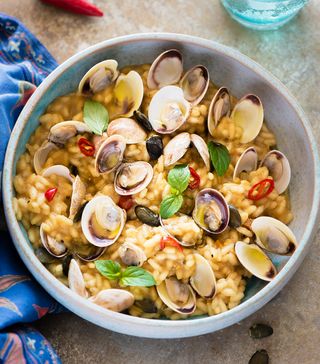
Seafood fans, take note! Fish, especially the shelled variety, is one of the best ways to supplement your diet if you're anemic, explain both Smith and Moskovitz. Come mealtime, they recommend shooting for roughly three ounces. (And again, a quick squeeze of lemon will only maximize its benefits and absorption.) Sardines (if you can be so brave) are another great option if you're not a fan of shellfish.
6. Quinoa
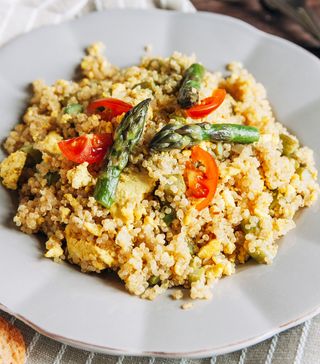
While iron-fortified cereals, grains, and pastas are indeed an option if you're looking to improve your iron levels, we suggest rerouting to a more natural pick like quinoa, which, according to Smith, is loaded with fortifying iron. And of course, other grains like amaranth, oats, spelt, Kamut, whole wheat, teff, and sorghum are excellent options as well.
7. Grilled Chicken Breast
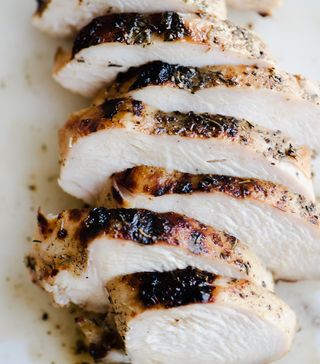
Not a beef or seafood person? You're in luck. "A lean-cut white meat like chicken is another top food for anemia if you're able to consume heme protein from animals," says Smith. For an iron-rich entrée, try for three ounces of chicken and a side of sautéed spinach, broccoli, and tomatoes.
8. Blackstrap Molasses
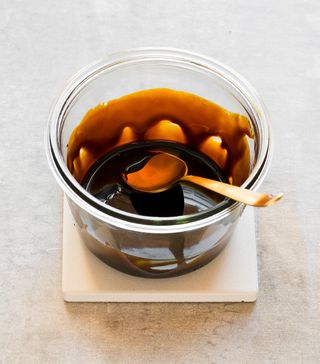
A lesser-known nutrition fact: Blackstrap molasses is actually a potent, under-the-radar superfood we for some reason practically never hear about (with gingerbread season being the exception). Not only does Moskovitz cite it as one of the best foods for anemia thanks to its sky-high iron content, but it's also a nutritional powerhouse when it comes to calcium, magnesium, vitamin B6, and selenium. And that's just the tip of the iceberg. Try adding a touch as a toast or oatmeal topping or even incorporating a spoonful into your go-to smoothie recipe. (It also lends a touch of sweetness— just keep in mind a little goes a long way.)
9. Legumes
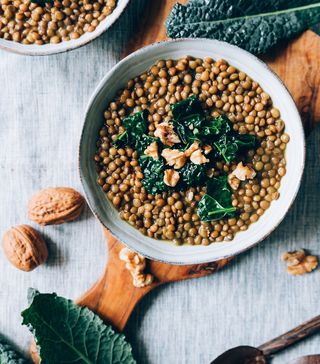
According to Moskovitz, legumes—especially lentils—are great for anemia, as just a half-cup dishes up 3.3 milligrams and around 20% of what your body craves for the day. Plus, they're also a great source of fiber (aka, a happier gut and quelled hunger). Oh, another pro tip she shared with us? Some foods (like coffee and tea) might actually interfere with iron absorption. In other words, consider refraining from having that cup with lunch. Or at least keep your liquefied caffeine to one or two cups maximum per day if you're keeping an eye on your iron levels.
10. Organic Eggs
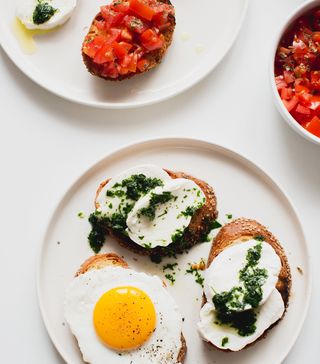
Last but not least: eggs. In addition to being one of our favorite breakfast staples and salad toppers, they also happen to be one of the best foods for anemia thanks to their naturally high iron levels. Pair with sautéed spinach and quinoa for a light lunch or create an iron-rich breakfast plate with eggs atop whole-grain toast, ghee or grass-fed butter, and lightly roasted tomatoes.
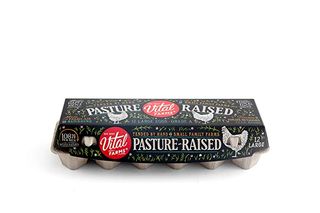
Next up: 9 Foods Inflammation Experts Never Eat
This post was published at an earlier date and has been recently updated.
Disclaimer
This article is provided for informational purposes only and is not intended to be used in the place of advice of your physician or other medical professionals. You should always consult with your doctor or healthcare provider first with any health-related questions.
Erin has been writing a mix of beauty and wellness content for Who What Wear for over four years. Prior to that, she spent two and half years writing for Byrdie. She now calls Santa Monica home but grew up in Minnetonka, Minnesota, and studied writing, rhetoric, and communication at University of Wisconsin, La Crosse. She studied abroad in Galway, Ireland, and spent a summer in L.A. interning with the Byrdie and Who What Wear family. After graduating from UW, she spent one year in San Francisco, where she worked as a writer for Pottery Barn Kids and PBteen before moving down to L.A. to begin her career as a beauty editor. She considers her day-to-day beauty aesthetic very low-maintenance and relies on staples like clear brow serum (from Kimiko!), Lawless's Lip Plumping Mask in Cherry Vanilla, and an eyelash curler. For special occasions or days when she's taking more meetings or has an event, she'll wear anything and everything from Charlotte Tilbury (the foundations are game-changing), some shimmer on her lids (Stila and Róen do it best), and a few coats of the best mascara-type product on earth, Surratt's Noir Lash Tint.
-
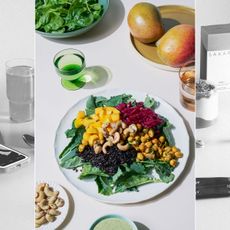 I Only Ate Sakara Life Meals for 30 Days—Here Are 7 Things That Happened
I Only Ate Sakara Life Meals for 30 Days—Here Are 7 Things That HappenedThe brand's 30-Day Fall Reset is finally here.
By Erin Jahns
-
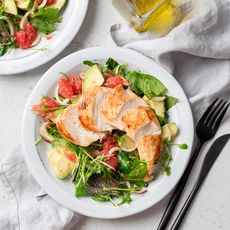 The 6 Warning Signs You're Not Getting Enough Protein
The 6 Warning Signs You're Not Getting Enough ProteinAnd what to eat to up your intake.
By Sarah Yang
-
 Everything This Professional Ballet Dancer Eats to Fuel Her For Performances
Everything This Professional Ballet Dancer Eats to Fuel Her For PerformancesHer grocery staples include high-quality French butter.
By Candice Aman
-
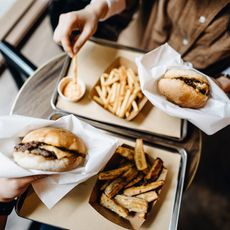 These 8 Foods Are the Worst for Rosacea—Here's What to Eat Instead
These 8 Foods Are the Worst for Rosacea—Here's What to Eat InsteadControl those flare-ups.
By Sarah Yang
-
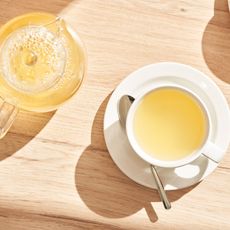 15 Things That Cause Bloating and How to Get Rid of It ASAP
15 Things That Cause Bloating and How to Get Rid of It ASAPTry these.
By Sarah Yang
-
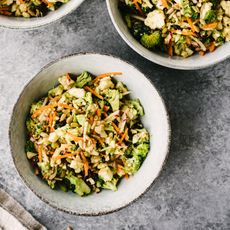 Is the Alkaline Diet Overhyped? What Experts Want You to Know
Is the Alkaline Diet Overhyped? What Experts Want You to KnowHere's how it works.
By Sarah Yang
-
 I'm an Imperfect Dietitian and My Key to Eating Healthy Meals Is Convenience
I'm an Imperfect Dietitian and My Key to Eating Healthy Meals Is ConvenienceTake a peek at my weekly grocery staples.
By Candice Aman
-
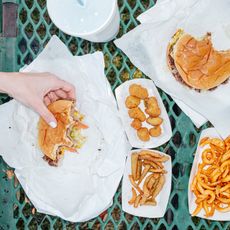 Avoid These 6 Foods—They'll Wreck Your Gut Health
Avoid These 6 Foods—They'll Wreck Your Gut HealthWhat to eat instead.
By Sarah Yang
